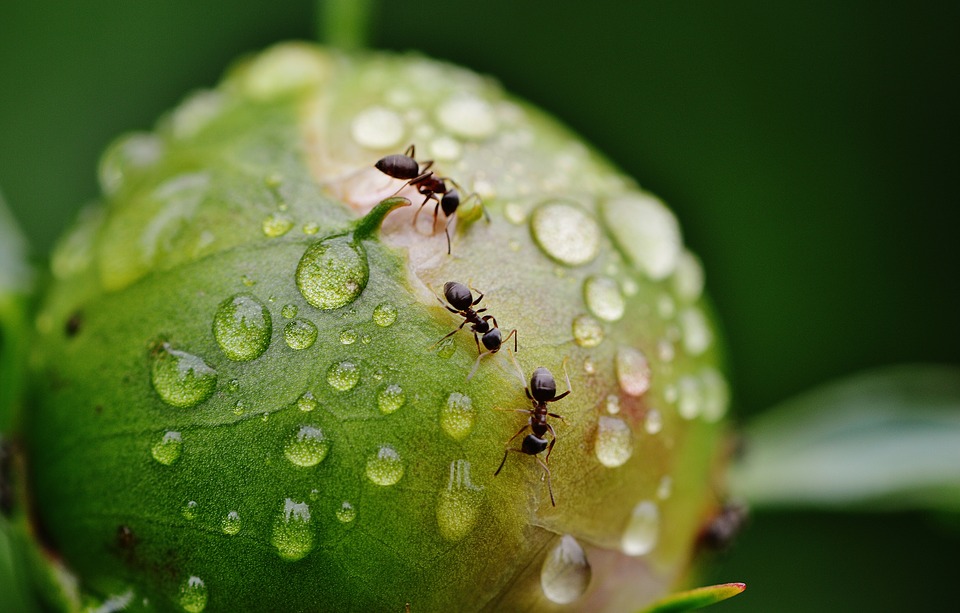Ant-Keeping
If you’re bored of the same old pet routine, consider adopting some ants this summer.
Benefits of Ant-Keeping as a Hobby

A Lesson in Biology and Ecology Right at Home
Firstly, an ant colony is a perfect manifestation of sophisticated social structures and organization. Your formicarium becomes a microcosm of the natural world. Observing these tiny creatures carry out their daily routines, from gathering food to caring for larvae, offers valuable insights into biology and ecology. This first-hand understanding not only deepens your appreciation for nature, but it’s also an excellent educational tool for children, inculcating scientific curiosity from a young age.
Stress Relief and Therapeutic Benefits
Ant-keeping can also serve as an unconventional form of relaxation. Just as some find solace in watching fish swim in an aquarium, observing the ordered chaos of ants going about their tasks can be oddly therapeutic. The simple act of watching these industrious insects can help relieve stress, promoting mental well-being.
Understanding the Value of Teamwork
Moreover, ants are the epitome of teamwork. Each ant plays a critical role in the survival and prosperity of the colony. The queen lays the eggs, workers gather food, soldiers defend the nest, and so forth. This complex cooperation is a subtle reminder of the importance of community, individual responsibility, and collective effort. These lessons, while gleaned from a tiny insect world, are applicable to our human societies as well.
Encourages Patience and Responsibility
Ant-keeping is a hobby that requires patience and meticulous care. From setting up the perfect habitat to ensuring the colony’s health, ant-keeping promotes responsibility. It’s a long-term commitment that rewards patience, much like nurturing a plant or caring for a pet. The journey from a few workers to a thriving colony gives you a sense of accomplishment and teaches the value of time.
Environmental Awareness and Conservation
Lastly, maintaining an ant colony can heighten awareness about the environment. As you learn about your ants’ natural habitat and the delicate balance required for their survival, you’ll be more in tune with the fragility and interconnectedness of our ecosystems. This understanding can instigate a deeper appreciation for our planet, highlighting the importance of conservation efforts.
How to Get Started with Ant-Keeping
Understanding Ant Biology and Behavior
Ants are fascinating creatures with complex social structures and intriguing behaviors. Understanding their biology and behavioral patterns is the first step towards becoming a successful ant keeper. Ants live in colonies headed by a queen, whose sole purpose is to lay eggs. The worker ants, who are all females, gather food, protect the colony, and care for the young. Some species have ‘soldier’ ants that are larger and more heavily armored, specifically designed to defend the colony. Male ants, on the other hand, have a single role: to mate with a queen.
Choosing the Right Species for You
There are over 12,000 known species of ants worldwide, each with unique characteristics and care requirements. The best species for beginner ant keepers are typically those that are hardy, relatively small, and non-aggressive. The Lasius niger, or black garden ant, for instance, is an excellent choice for beginners. They’re robust, easy to care for, and their colonies grow at a manageable rate. Other species, such as the Harvester ants, are intriguing because of their seed-collecting behavior but might pose a challenge due to their potent sting.
Setting Up Your Ant Farm
An ant farm, also known as a formicarium, is the artificial habitat where you’ll house your ant colony. When choosing or building a formicarium, consider factors such as visibility (for observation), ease of maintenance, and suitability for the ant species you’ve chosen. It’s important to provide the ants with an environment that mimics their natural habitat as closely as possible. This might include soil, sand, or a combination of the two, depending on the species.
Providing Proper Care and Nutrition
Ants require a diet of sugars and proteins. Sugar, often in the form of a simple sugar-water solution, provides ants with energy, while proteins, which can come from sources like insects or commercially available ant food, are essential for growth and development. It’s crucial to provide fresh water for the ants as well, usually in the form of a small, shallow dish or via a water feeder.
Observing and Learning
One of the joys of ant keeping is observing the ants’ intricate social behaviors and learning about their fascinating world. From watching worker ants forage for food to observing the queen laying eggs, keeping ants can provide endless hours of captivating observation. Document your observations and consider joining online ant keeping communities to share your experiences and learn from others.
After Thoughts
Finding out about all the benefits that ant-keeping as a hobby has to offer will make you want to go out today and do it! Just remember, take your time while researching which species will be best for you before purchasing them, because getting an incompatible ant species could result in death for both colonies involved.
However, once you get your ant colony and set them up with a habitat, you’ll be able to watch these amazing little creatures do their thing without needing to worry about letting them go free outside.
They provide many great benefits, and watching them play around is just an added bonus!